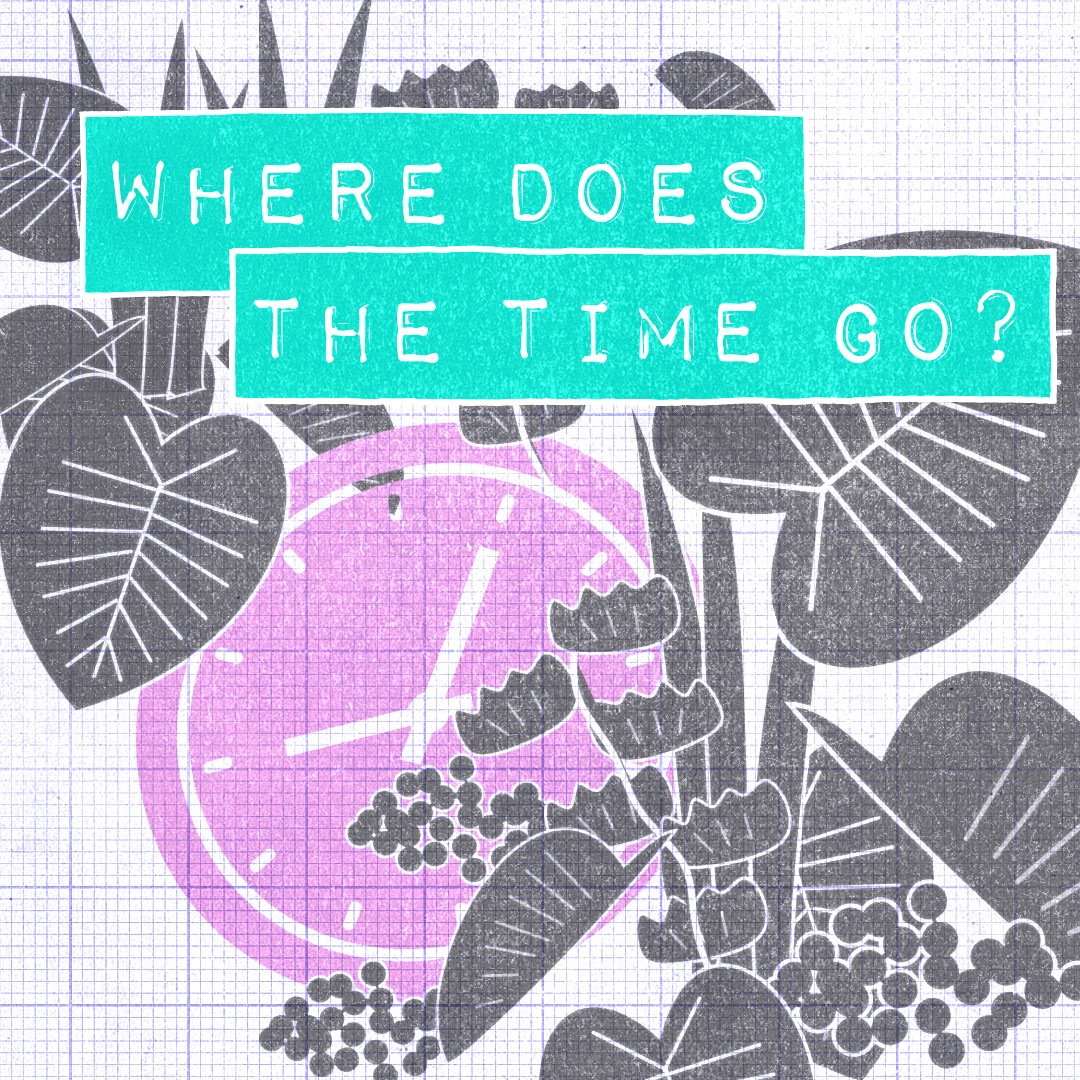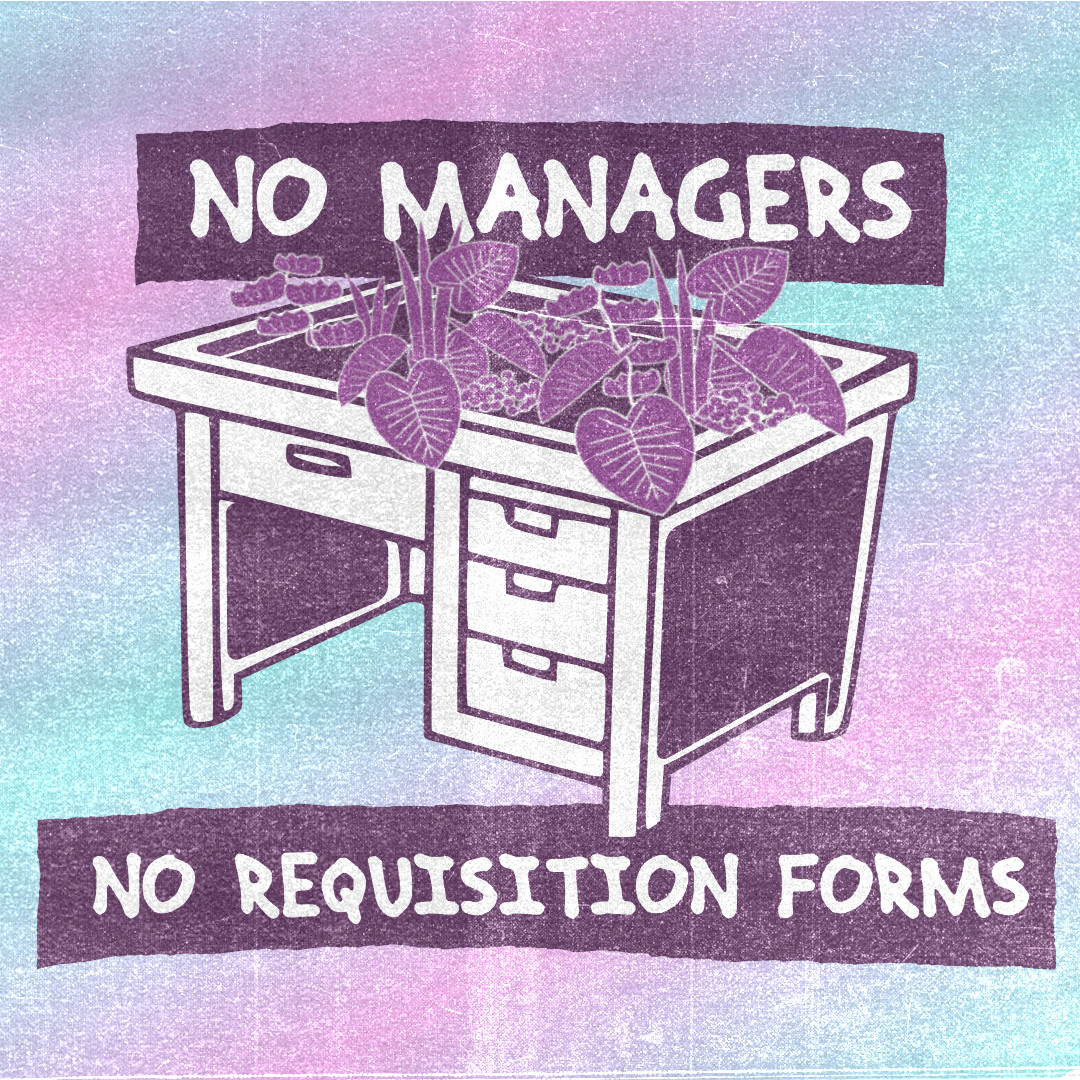This week I’ve been thinking about what the economy would look like if universal human flourishing, as opposed to growth or profit, was the goal. What if people’s lives were the ends, rather than the means, of economic activity? I want to share with you an idea for how to make sure everyone has enough to live.
A better world is possible. Subscribe to learn how to build it!
Universal Basic Income: a system for unconditional support
Universal Basic Income (UBI) is simple, surprisingly hard to imagine, and potentially transformative (for good or bad, depending on who you ask). Whether or not it turns out to be the best policy, even thinking about the possibility raises important questions. I’ve been trying to understand UBI. Here’s what I’ve found.
A simple idea
This is all it is: Everyone gets cash support, no matter what their story is. That way no one can fall below a certain level of subsistence.
I like Kathi Weeks’ more extended description:
[UBI is] a minimal livable income regularly remitted as a social wage, paid unconditionally to residents regardless of citizenship status, regardless of family or household membership, and regardless of past, present, or future employment status.
Here are some overviews of UBI:
A basic intro to UBI: Dayton Martindale, “Universal Basic Income: A Primer.” in In These Times, April 25, 2018.
A clearing house of UBI info: Basic Income Earth Network (BIEN)
A feminist view of the concept: Kathi Weeks, “Anti/Postwork Feminist Politics and A Case for Basic Income,” in tripleC 18 (2), 2020.
…that raises important questions
UBI is simple, but is also so completely counter to contemporary ideas about social support, it can be hard to think about. Current social support is built on some assumptions: only some people deserve help, people should get as little assistance as possible, and you need to make sure unemployment is terrible in order make sure people get jobs and contribute to society. The US safety net has been engineered around those assumptions. The system ends up being demeaning, difficult to navigate, punitive, and fails to help many people. It also becomes a labyrinth of rules, forms, processes, and agencies.
It’s a lot better than nothing. But it’s not great.
To think about UBI means to let go of all of those assumptions. The idea asks us to believe that every single human deserves to have the means to live. And it asks us to commit, as a society, to making sure that happens. It also asks us to trust that people generally want to contribute to the world— that they don’t need to be threatened to do so.
Letting go of these assumptions isn’t easy. I can hear a little voice in my head that wants to ask: “What if people are lazy?” The UBI answer is: no. Just, no. Laziness just isn’t an applicable category when thinking about whether or not people should be helped. Then there is the deeper question of whether or not the whole idea of laziness is valid. This runs deep. There’s a habit of mind of equating someone’s personal worth with their productivity and their productivity with their income. It’s an idea with a long history. UBI cuts right into that tradition and asks us to think about whether or not it’s a healthy way to think. It’ll take a lot of personal and social work to unpick this knot— a topic worth revisiting later.
UBI proponents also point to a lot of positive knock-on effects. Like, UBI would loosen the link between work and income. The change would acknowledge the fact that many people, for many reasons, have some periods of their lives when they can’t hold regular paid employment. Some people are never able to consistently do something that pays. No matter why, people in that circumstance would still be able to live their lives. It would allow people more flexibility to refuse underpaid or dangerous work, to find work what is meaningful to them and their communities, and to spend time on unpaid activities, like creative pursuits or care work. It would also allow people to form their families and relationships in ways that fit them best, with less economic calculus. UBI proponents point to these shifts as a way to start a society-wide transformation in how people live their lives.
UBI might be a good way to accomplish these goals or there might be a better way. In either case, just thinking about the possibility highlights a lot of assumptions of the existing world and outlines important elements of a more humane way of living.
Wait, isn’t Milton Freedman into UBI? Is this a trick to undermine social support?
There is a conservative version of UBI that is pitched as a way to eliminate the existing safety net, ultimately shrinking government assistance. Being co-opted by this agenda is a definite danger of any UBI campaign. Progressive proponents are careful to distinguish their idea from the conservative version, saying that it needs to be something added to the social support system and that UBI support would have to be large enough to give people real choices (as opposed to simply not starving). The Undercommons, a freedom school in Los Angeles, calls this “UBI+”.
Actually, there are arguments for and against UBI on both the right and the left.
A good analysis of the politics of these arguments: Peter Frase, “On the Politics of Basic Income.”
A progressive argument against: Daniel Zamora, “The Case Against a Basic Income,” in Jacobin, 12/28/2017
A progressive case for it: Jesse A. Myerson, “The Right to a Dignified Life.” in Jacobin 8/4/2015.
The Undercommons on the role of UBI+ in racial justice: The Undercommons, “No Racial Justice Without Basic Income,” in the Boston Review, 5/3/2017.
Has this been tried before?
Here’s a deep cut: From 1795 to 1836 there was a system of guaranteed income in parts of southern England called the Spleenhamland System. It has been considered a failure by most of the big political economy thinkers of the past two centuries. Malthus, Marx, Ricardo and Polyani all hated it variously for making people poorer, unwilling to work, and/or immoral. It turns out, though, that most of those analyses were based on a government report written by the people trying to overturn the system. The report looks like an example of motivated reasoning and poor methodology. More recent studies have suggested that Spleenhamland system had an overall positive effect at a time of massive economic disruption and maybe was part of the reason the British economy grew so quickly during the period.
Over the past 60 years, there have been many pilot studies to see how people would respond this kind of support. In 1970, a US study distributed tens of millions of dollars to 8,500 Americans in several cities across the country. The results were encouraging enough to lead Richard Nixon to nearly put UBI in effect at a national level. A moral panic about people not working hard enough and getting divorced, among other things, sunk the bill at the last moment. There have been many more experiments. My sense is that the results have generally been positive.
An exploration of both Spleenhamland and Nixon’s Family Assistance Plan: Rutger Bergman, “Nixon’s Basic Income Plan” in Jacobin 5/5/2016.
An article looking at a 2008 California experiment and UBI-adjacent elements of the pandemic stimulus bill: Sheelah Kolhatkar, “Biden’s Stimulus Plan Contains an Experiment in Universal Basic Income” in the New Yorker, 3/15/21.
There’s more to learn
There is a lot more to explore on this topic. Two areas especially jump out:
Finding a good overview of the design and outcome of the various UBI experiments since the 1960s. There have been a lot around the world. I get the sense that they have been generally positive, but there is more digging to do.
Understanding the economic mechanics. It’s easy to dismiss the whole idea as obviously unaffordable (where would the money come from?), but the mechanics are harder to understand than one might expect. There seem to be deep differences in how people think about the feasibility of UBI that depend on their understanding of the nature of money and value. At some point, I’m looking forward to diving into the metaphysics of money. Stay tuned!
What do you think? What changes (good or bad) do you see as possibilities? What else should be here? Let me know with the comment button.
Is there someone you know who would be interested in this? Is there a conversation this could contribute to? Send it along with the share button.
I’d love to hear from you. What’s your vision for a living world? What projects and ideas are you excited about? What topics do you want to see here? What am I missing? Let me know in the comments.




